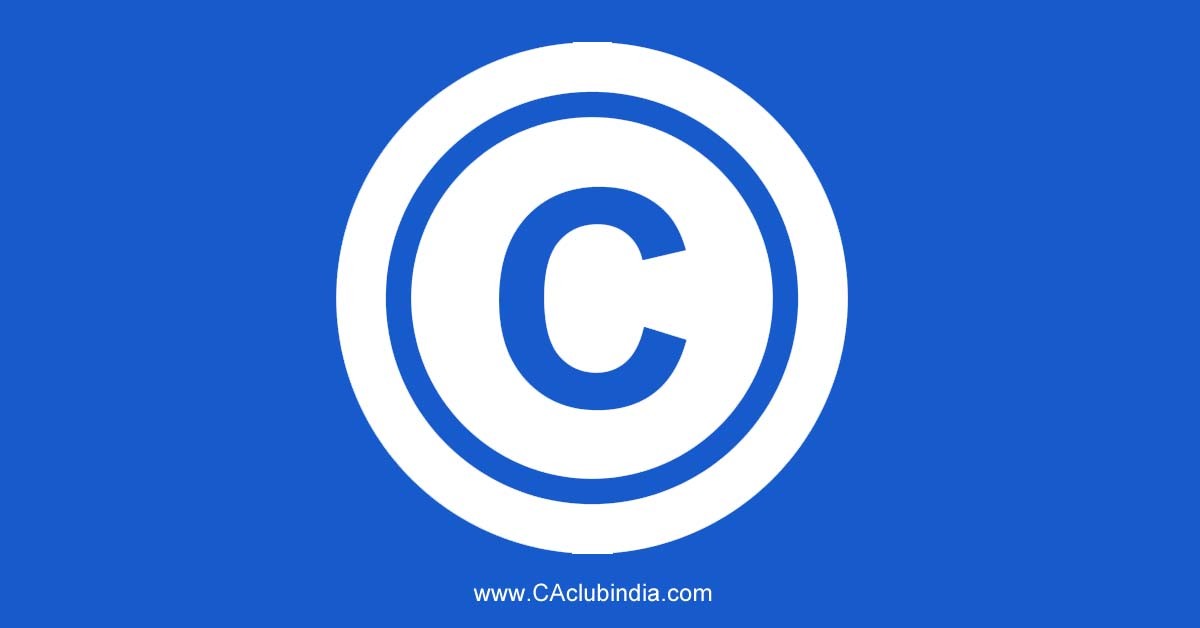COPYRIGHT
- Copyrights protect original works of authorship, such as literary works, music, dramatic works, pantomimes and choreographic works, sculptural, pictorial, and graphic works, sound recordings, artistic works, architectural works, and computer software.
- Copyright in India is governed by Copyright Act, 1957.
- As per this Act, copyright grants author's lifetime coverage plus 60 years after death.
- All original intellectual creations expressed in a reproducible form will be connected as "works eligible for copyright protections".
- There are different classes of copyright including literary, artistic, musical works and sound recordings and cinematograph films.
- The work will be protected irrespective of the quality and also when it may have very little in common with accepted forms of literature or art.
- Copyright protection involves novel rights that shall include the right to claim authorship of a work, and the right to oppose changes to it that could harm the reputation of creator.
- The owner optionally gets the order of the court to stop such activities, also he can seek damages for loss if any for financial rewards and recognition.

PROTECTION TO AUTHORS
Copyright protects the rights of authors, who has created an intellectual property including literary, musical, dramatic and artistic works and cinematograph films and sound recordings.
The following rights are protected
- Reproduce the work;
- perform the work in public;
- communicate the work to the public;
- Making of cinematograph film or audio recording in respect of work
- Making any translation of the existing work
OWNERS OF COPYRIGHTS
The following are the owners of the copyrights:
i. In musical sound Recordings
Lyricist, composer, singer, musician etc. who had actually produced the sound recording.
ii. In case of a work made during the course of employment
The employer shall be the primary owner of copyright.
iii. If it has been made for any valuable consideration
In the absence of a contract to the contrary, the copyright shall vest with the person for whom the work was created.
PROCESS FOR COPYRIGHT REGISTRATION
There are following steps that shall be followed by the applicant:
- Step 1: The application for Copyright Registration has to be filed by the applicant in regards to the concerned form which mentions the work. The copyright application varies for the type of work.
- Step 2: The person who is filing the application has to sign the forms and the Advocate has to submit the application.
- Step 3: Once the application is submitted, the diary number will be issued.
- Step 4: The copyright examiner will review the application and revert back in 30 days from the date of application.
- Step 5: If there is any objection, the examiner will issue a notice and the applicant has to comply on it within 30 days from the date of issue of notice.The examiner has right to call both the parties for a hearing.
- Step 6: After the examiner is satisfied that the application is proper then the copyright will be registered. The office of Copyright will use the certification of registration.
DOCUMENTS REQUIRED FOR COPYRIGHT REGISTRATION
For registration of copyright there shall be following documents will be required:
- Name, address, and nationality of the candidate- Id Proof;
- NOC from the publisher if the publisher and the applicant are two different individuals;
- Search Certificate if any;
- Power of attorney;
- 2 Copies of the work;
- KYC of author.








 CAclubindia
CAclubindia
